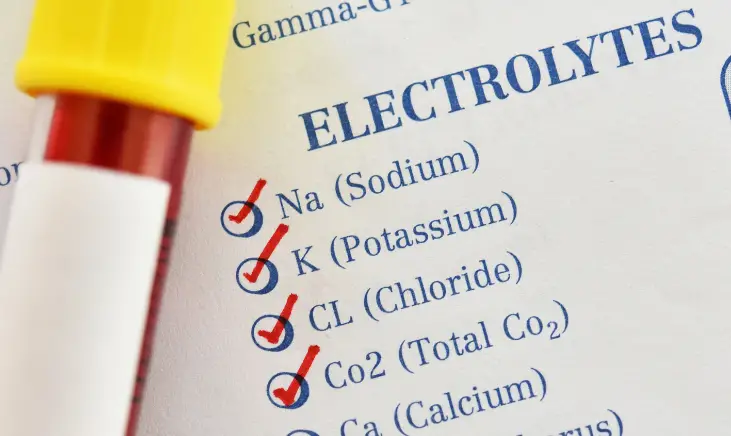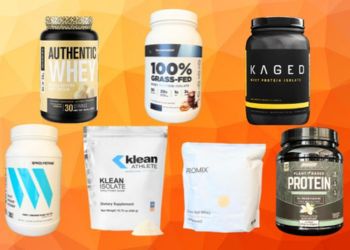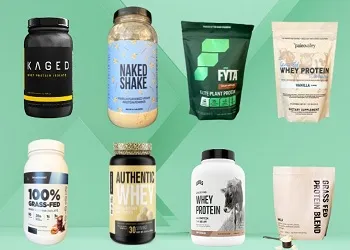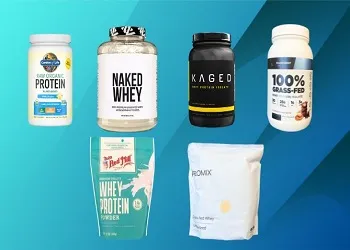Healthy hydration is about more than drinking enough water. When you sweat, your body loses both water and the electrolytes it needs for essential processes like muscle function, pH regulation, and fluid regulation.
Restoring those electrolytes at the optimal time is a crucial part of maintaining a healthy balance in your body.
However, the best time to drink electrolytes depends on the individual. Your age, activity level, lifestyle, and even the climate can determine the best time to drink electrolytes. Learn more about electrolytes, how they function in the body, and the best time to drink electrolytes based on specific factors.
Table of Contents
Understanding Electrolytes
Electrolytes are electrically charged minerals that help you stay hydrated. During exercise or any intense physical activity, the body loses water and electrolytes via sweating (electrolytes are also eliminated during urination). You can actually see this process in action: if you are exercising heavily and notice a white substance on your clothing, you’re likely losing salt, containing the electrolyte sodium.
Humans can’t survive without electrolytes. These minerals move fluids into your cells and carry waste products out. They stimulate muscle contractions and transmit the electrical impulses that keep your heart beating. Electrolytes help maintain healthy fluid levels in blood plasma and balance your pH levels to regulate the acidity and alkalinity in your body.
You get electrolytes from the food you eat and the fluids you drink. A well-balanced diet should provide you with sufficient electrolytes as long as you drink plenty of water. Electrolyte beverages are widely marketed as sports drinks, but many of these contain too much sugar, artificial coloring, and fillers.
Common electrolytes include:
- Bicarbonate. This electrolyte regulates the body’s pH by being excreted and then reabsorbed by the kidneys as a buffering system that goes into action when pH changes are detected. Natural blood pH levels are between 7.36 and 7.44; pH levels are acidic if less than 7. If you undertake intense exercise without adequate hydration, your bicarbonate levels can plummet. Bouts of diarrhea can also result in bicarbonate loss.
- Calcium. Bone strength and calcium are virtually synonymous. Exercise can cause stress fractures and other bone injuries exacerbated by a lack of calcium. Calcium also plays a role in hormone secretion, nerve impulse transmission, and blood clotting.
- Chloride. Chloride helps balance acids and electrolytes in the blood and supports joint and tendon health.
- Magnesium. This electrolyte helps cells turn nutrients into energy. Insufficient magnesium can lead to fatigue, especially during workouts. Magnesium helps regulate metabolism, proper muscle and neurological function, and the release of neurotransmitters that carry messages between nerve cells.
- Phosphate. Phosphorus combined with oxygen becomes phosphate. Unlike other electrolytes, most phosphate in the body does not carry an electrical charge. Most of the body’s phosphate is found in bone, but the rest is involved in energy production in cells. Along with forming bones and teeth, phosphate serves as a building block for cell membranes and DNA.
- Potassium. Essential to all metabolic activities, potassium regulates fluid and nutrient flow into and out of the body’s cells. Low potassium levels can lead to poor nerve impulses, resulting in a loss of control over muscle contractions. The right amount of potassium can decrease blood pressure, which in turn reduces the risk of heart attack and stroke.
- Sodium. If you’ve ever tasted sweat while exercising, you know perspiration is salty. All that salt on your skin is sodium exiting your body. Like potassium, sodium supports the contraction and relaxation of muscles. Depleted sodium levels after exercise can result in muscle cramps, dizziness, or appetite loss.
According to the CDC, most Americans consume too much sodium and too little potassium. Excess sodium consumption generally comes from eating processed foods.
Sports drinks are among the most popular choices for electrolyte replenishment. However, while they provide a good source of water, sodium, potassium, and carbohydrates, most sports drinks also contain a considerable amount of sugar and empty calories. For this reason, sports drinks are generally more suitable for athletes or people performing endurance activities than those taking part in low-intensity exercises.
Older people tend to need fewer electrolytes in their diet than those under 50. The exception is calcium: people over 50 require a higher calcium intake to combat osteoporosis or osteopenia.
Benefits of proper electrolyte consumption

Benefits of proper electrolyte consumption include:
- Preventing muscle cramps
- Promoting hydration
- Supporting nerve function
- Recovering after physical activities
In addition to supporting essential physiological processes, maintaining a healthy electrolyte balance can help you stay focused and mentally alert. It can also improve hangover symptoms such as dehydration, headache pain, and nausea. Proper electrolyte intake can help you enjoy longer stretches of peak physical performance and faster recovery from strenuous exercise.
Signs of low electrolyte levels
Knowing the signs of depleted electrolytes can help you address the issue quickly and get back to feeling your best. Signs of low electrolyte levels include:
- Blood pressure changes
- Fatigue
- Headache
- Intense thirst
- Irritability
- Lack of energy
- Muscle cramps or twitching
- Nausea
Replenishing your electrolytes at the appropriate time can help ensure your body enjoys optimal benefits.
The science behind the timing

Your body’s electrolyte needs do not remain static but change throughout the day, depending on the situation. Exercise, hot weather, and disease can affect the body’s electrolyte needs and mechanisms.
Electrolytes allow your body to maintain normal fluid levels through a process called osmosis. Nearly all fluids in your body contain electrolytes; if the electrolyte levels in a certain area are too high, fluid enters the area to reduce the concentration. If levels are too low, fluid leaves the area to increase concentration. The kidneys regulate electrolyte concentration by filtering the blood. Electrolytes are then returned to the blood or excreted through urine, depending on the body’s needs.
Sweat is the primary culprit for depleted electrolytes. People who sweat heavily or have very salty perspiration should drink electrolytes prior to working out to ensure their levels don’t become depleted. But it’s not all about exercise—sweating due to heat, humidity, or illness can also deplete fluid levels and electrolytes at a time when your body needs all the help it can get. Being aware of your needs and environment is the best way to ensure you maintain healthy hydration at all times.
As a general rule, electrolytes consumed prior to a workout can help boost endurance and muscle power. Drinking electrolytes during a workout helps maintain hydration. Post-workout, electrolytes help replenish the fluids lost during strenuous exercise.
Best Time to Drink Electrolytes

There are good arguments for electrolyte consumption before, during, and after your workout. Consider your exercise goals, environment, and overall health to determine the best time to receive optimal electrolyte benefits.
Bear in mind that hydration is extremely important at all times! Always have plenty of water available, no matter when you plan your electrolyte intake.
Pre-workout electrolyte intake
Consuming electrolytes before your workout can enhance performance while preventing dehydration. Think of drinking electrolytes before exercising as pre-hydration. If you become dehydrated during your workout, rehydration and replacing electrolytes becomes harder.
Mid-exercise hydration
It’s vital to maintain hydration during exercise. Drinking electrolytes while you work out replaces lost water and minerals and can help boost your performance.
Post-workout recovery
After your workout, electrolyte consumption helps muscle recovery and can prevent cramping. For most people, this is the best time to drink electrolytes since your body has lost some to perspiration. Drinking electrolytes after your workout is less likely to stress your gastrointestinal system.
Electrolytes for morning hydration
Kickstart your day by consuming electrolytes to replenish those lost during sleep. Losing electrolytes while sleeping is a normal process, so it can be helpful to restore the body’s normal fluid and electrolyte balance first thing in the morning.
For the average person, morning is often the best time to drink electrolytes. For anyone who snores, tends to breathe through their mouth when sleeping, or suffers from sleep apnea, drinking electrolytes in the morning to replace those lost during sleep is essential. An electrolyte drink featuring sea salt is a good choice. So is lemon water, which not only contains electrolytes but is also a great immune system booster.
Electrolyte intake during illness
When you are feeling under the weather, consuming a sufficient amount of electrolytes is even more critical. Electrolytes play a key role in the immune system. Chloride, calcium, potassium, and sodium work together to help your body destroy damaged cells before mutation occurs.
Vomiting, diarrhea, and the effects of fever can cause severe dehydration. Drinking electrolytes while recuperating can help you recover more quickly.
Electrolytes in hot weather
Hot weather increases the possibility of dehydration significantly. You lose electrolytes and minerals from sweat even if you are not performing any strenuous activities.
To prevent dehydration, men should make sure they drink at least 15.5 cups of water daily, and women should drink 11.5 cups. Keep water on hand at all times. Try to limit activities during the hottest part of the day.
Remember, sweat is good! Perspiration is how your body regulates its temperature and avoids dangerous conditions like heat stroke. Consuming sufficient water and electrolytes allows your body to keep you cool. Substituting coconut water (not to be confused with coconut milk) for some of your daily water intake offers a refreshing, natural source of hydration, potassium, manganese, and sodium—perfect for a hot day.
Electrolyte timing for intense activities
If you engage in intense exercise or physical activities that last more than 60 to 90 minutes, time your electrolyte consumption to coincide with your exercise regimen. The electrolytes most likely to be lost during intense exercise are calcium, magnesium, potassium, and sodium.
Effective rehydration during intense exercise requires more than water consumption. A sports drink formulated specifically for extreme workouts may be appropriate in these situations.
According to the American College of Sports Medicine, individuals participating in intense athletic activities should drink about 17 ounces of fluid two hours before exercise. This time frame allows for adequate hydration and the excretion of excess fluid through urination prior to the event or competition. If the exercise period is less than one hour, there is little difference between consuming plain water or an electrolyte/carbohydrate drink.
Evening electrolyte consumption
In the evening, drinking electrolytes helps relax your muscles while contributing to your overall health. According to the Sleep Foundation, there is a strong link between hydration and sleep. If you have issues falling asleep, you’ve probably tried a few remedies with varying results. Electrolyte consumption may help you get the restorative sleep you seek.
Of course, drinking too much water before bed (with or without electrolytes) can result in the need to get up frequently during the night. Reduce your fluid consumption in the hour or two before bedtime to stay hydrated without having to make too many trips to the bathroom.
Balancing electrolytes in the daily diet

Incorporating electrolyte-rich foods and beverages into your daily diet is crucial for maintaining consistent balance and hydration. If your diet consists of foods full of electrolytes and you drink plenty of water, your electrolyte levels should be well-balanced, barring an underlying condition.
Food and beverages high in electrolytes include:
- Avocados. A rich source of electrolytes, especially potassium and magnesium, but low in sodium.
- Dairy products. Milk, cheese, and yogurt are renowned as good sources of calcium and phosphates.
- Egg yolks. High in phosphates.
- Fruits. Apricots, bananas, oranges, strawberries, and watermelons are among the most electrolyte-rich fruits.
- Leafy green vegetables. Kale, spinach, and collard greens are good sources of magnesium and calcium.
- Potatoes. Spuds contain high levels of potassium (just take care with your toppings).
- Seeds and nuts. High in magnesium.
- Sweet potatoes. High in magnesium and potassium, and delicious with a little salt sprinkled on them.
- Tomatoes. Rich in potassium, magnesium, and calcium. Tomato juice makes a good electrolyte beverage.
Consulting a healthcare professional
If you frequently suffer symptoms of low electrolyte levels, it’s wise to consult a doctor, especially if drinking fluids with electrolytes does not offer prompt relief. These symptoms may indicate certain serious conditions, including chronic kidney disease, heart disease, and diabetes.
A basic electrolyte workup helps your doctor diagnose medical conditions. Tell your doctor about any medications you take, either prescription or over-the-counter. For instance, over-the-counter diuretics (also called water pills) can affect your hydration and electrolyte balance. Taking hormones may also affect electrolyte levels.
For personalized guidance regarding electrolytes and your exercise regimen, contact a healthcare professional, such as a dietitian or nutritionist. An expert can determine your hydration needs based on your overall health and athletic or exercise goals.
Key Takeaways
- To keep electrolytes in balance, consume a healthy diet and drink plenty of fluids.
- Prioritize electrolyte balance in your daily routine.
- Take extra precautions with hydration in hot weather.
- You must consume more fluids than you lost in sweat during exercise.
We’ve all seen the ads for sports drinks talking about electrolytes. It’s not just a buzzword! Electrolytes play a key role in your body’s ability to maintain a healthy pH balance, create and expend energy, and stay hydrated. Being aware of your goals and needs can help you optimize your electrolyte intake to ensure your body receives maximum benefits.














